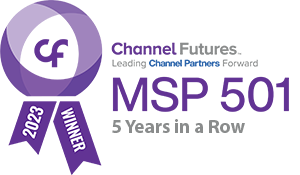Hospitals are increasingly using computers to help with various tasks, from patient care to administrative duties. Many hospital computer systems us electronic health records, allowing easy care coordination between doctors and other healthcare providers.
Computers can also schedule appointments, track lab results, and manage billing and insurance information. In addition, computers can be a valuable tool for educating patients about their health conditions.
Computers are becoming increasingly important in the medical field due to the beauty of hospital computer systems and their many benefits. This article will discuss the uses of computers in healthcare facilities and how they can help improve the quality of care.
The Various Uses of Computers in Hospitals and the Medical Field
Here are the various ways in which computers are used in hospitals, health clinics, and other medical fields:
-
Electronic Health Records (EHR)
Electronic health records (EHRs) are computerized systems that store and organize patient data and treatment plans. EHRs are designed to make it easier for physicians to access patient information. They also provide an efficient way to share this information among medical professionals.
-
Scheduling Appointments
Scheduling appointments is one of the most common uses of computers in hospitals. This process allows doctors and nurses to book time slots for patients. It also helps ensure that there are enough staff members available when needed.
-
Tracking Lab Results
Tracking laboratory results is another important use of computers in hospitals. Doctors and other healthcare professionals often need to know whether specific tests were performed or whether any abnormal findings occurred during a procedure. These reports are usually stored on paper but can easily be converted into digital format.
-
Billing and Insurance Information
Billing and insurance information is another area where computers play a role. Physicians and other healthcare workers must keep up-to-date medical records of all patient services. This includes tracking what procedures were performed, who was involved, and what payment was made.
-
Patient Education
Patient education is another area where computers can be helpful. Patients may receive educational materials through email, text messages, or online videos. These materials aim to educate patients about their condition and treatment options.
-
Research
Research is another area where computers are helpful. Researchers can use computers to search databases containing large amounts of research data. They can then analyze this data to find trends and patterns.
-
Computer-Aided Diagnosis (CAD)
Computer-aided diagnosis (CAD) is a technique that involves analyzing images taken by diagnostic equipment such as x-ray machines or MRI scanners. CAD software compares the image against a database of normal and abnormal images. If the program finds a match, it alerts the user so that they can take further action.
-
Telemedicine
Telemedicine refers to using telecommunications technology to deliver health care services. For example, telemedicine can allow doctors to diagnose illnesses from afar. It can also enable them to monitor patients remotely.
-
Other Uses
Other uses of medical computers include tracking inventory, managing finances, and creating electronic forms.
The Use of Computers in Telemedicine to Improve Communication in Healthcare
Everyone is always connected via mobile phones or laptops in today’s fast-paced society.
Communication and telemedicine are two of the most critical aspects of healthcare. In this rapidly growing world of technology, healthcare providers need to be able to offer their patients the best possible care.
Telemedicine involves the use of telecommunications technology to provide medical care and services. It can be used for various purposes, including diagnosis and treatment, consultation, education, and research.
Telemedicine can improve access to healthcare, especially in rural and remote areas. It can also help to improve the quality of care by providing more timely and convenient access to specialist services.
Healthcare providers offering telemedicine services can provide their patients with several advantages. First, telemedicine can help to improve communication between healthcare providers and their patients. When patients can communicate with their healthcare providers via telephone or video conferencing, they are more likely to feel comfortable discussing their health concerns.
Hospital Computer Systems and The Benefits They Offer
Hospital computers are now indispensable to the medical staff and medical personnel. The application of computers in the hospital has brought about many changes in how nurses and doctors work. The applications of computers have been used to create new methods for patient care and to develop more efficient ways to manage hospital resources.
For example, computers have helped change how information is stored and accessed in the hospital. This is because medical records can now be stored electronically on computer systems. In addition, computers have also helped improve patient care by providing medical personnel with quick and easy access to millions of patient records.
Of course, destructive computer programs can be a severe threat to the hospital environment. However, by working with qualified IT professionals, hospitals can ensure that their medical computer systems are secure.
The Advantages and Disadvantages of Using Custom-Made Medical Devices in Hospital Wards
Medical devices in hospital wards give the staff more control over the patients. There are many benefits to using a device in hospital wards. One of them is that it can help the hospital staff communicate more effectively with the patients. This device design also allows the team to monitor the patients more closely.
In addition, this custom-made medical device can also help the staff to provide better care for the patients. This is because the team can use this device to customize the care they provide for each patient. This is something that is not possible with other types of devices.
So as custom-made medical devices have many benefits, they also have disadvantages. One of them is that they are expensive. Another disadvantage is that they require a higher level of training for the staff.
However, these disadvantages should not outweigh the advantages of using custom-made medical devices in hospital wards. This is because the benefits of using these devices can help to improve the quality of care that the patients receive.
Uses of Computers in Day-to-Day Hospital Operations
Today, many hospitals have a built-in voice and video applications that use computers to help with management and daily operations. One of the most common applications is an electronic medication management system, which can be used to keep track of a patient’s medications and dosages.
Other uses for computers in hospitals include asset management, which helps to keep track of hospital equipment and supplies, and everyday hospital management tasks such as scheduling and billing. Computers can also be used for research to help doctors and nurses keep up with the latest medical advancements.
The Importance of Computers in The Cure and Management of Diseases
A computer is used extensively in hospitals to detect and control disease transmission rates. The spread of disease is monitored and controlled using computerized medical databases.
Contagious diseases are also tracked using computers. Currently, cures for diseases are also being developed using computers. In the future, computers will play an even more critical role in curing and managing conditions.
How Computers Have Improved Surgery and Medicine Development
Complicated procedures and surgeries can be planned using computers, leading to more successful surgical operations. Complex processes previously impossible to plan can now be mapped out using software, leading to fewer complications and a higher success rate. In addition, computers can manage pre-operative and post-operative care more effectively, as patient records can be easily accessed and monitored. This leads to better overall patient care.
Additionally, the analysis of medicine has been enhanced by computers. Doctors and researchers can more easily identify patterns and trends by storing and organizing data on patients, treatments, and outcomes. This helps them to develop new and more effective treatments. In addition, computers can create models of diseases and how they progress. This allows researchers to understand conditions better and develop new ways to treat them.
Conclusion
Computers have become an integral part of our daily lives. They aren’t just limited to home PCs anymore. Today, we can find computers at work, school, and everywhere else. Although many people don’t realize it, computers have changed our world.
Thus, using computers in medicine has led to better patient care and improved outcomes. It has also enhanced medicine analysis and helped researchers develop new and more effective treatments. Computers have truly revolutionized the field of medicine.
If you want to know how to use computers effectively in your healthcare facility, please contact our team of experts at WheelHouse IT. We would be happy to help you! Simply call +1 877-771-2384 to get started.











